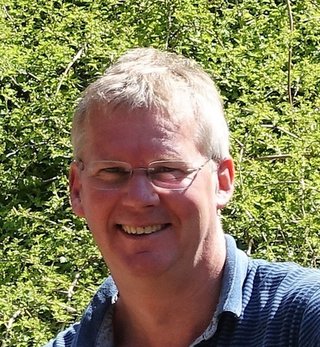Interview with
Work Package 1 Leader

George Beers,
Project Management
What is, in your opinion, the most important legacy of IoF2020?

The most important is that from the 33 Use Cases who joined IoF2020, most of them developed a new IoT- based business, and almost all of them indicated they will continue to work on their innovation after the project (and funding) has ended. Another result of the project is that the KPI’s that the Use Cases formulated (e.g. use of chemicals, water efficiency, antibiotics, yield, product quality, animal welfare, efficient certification, traceability, labor, etc. etc.) have shown significant improvement. This demonstrate concretely the benefits that IoT brings to the AgriFood sector. In IoF2020 we focused on re-usability, which resulted in a rich IoT catalogue of reusable components. With this catalogue we make our experiences and results available for to a wider audience and I am sure it will be an important asset for efficient and effective digitization in the agri-food sector. Last but not least to mention, in IoF2020 a wide set of tools were developed to support the use cases on technical issues, business development, ethics and promotion. These tools will be made available to other parties, like Digital Innovation Hubs, that provide supporting services to digitization projects and initiatives.
Looking back on your participation to IoF2020, what were some of the challenges that your work package encountered?

Of course, for such a large project it is quite a challenge to manage the administrative and financial aspects. Because we had an experienced and dedicated team working on these matters, all issues were handled in a smooth and professional way. Another challenge was the coordination of the wide-range of activities related to the project, in the use cases as well as in the work packages. The Project Steering Group (PSG), in which the Work Package leads were represented, played a crucial role in coordinating and streamlining all these activities. During the past 4 years, we met every on a bi-weekly basis to inform each other during lively and active meetings. When promoting the cooperation between Use Cases, it seemed logical to also develop cooperation with other initiatives in the field of digitalization. Working on this resulted in interesting joint action plans, however, in practice we could not find a way to work on these plans very actively. The concept of a Large Scale Pilot was a rather new instrument for the European Commission. Being one of the ‘flagship projects’, the European Commission was very interested in IoF2020. In fact, the Commission was also involved in some of the strategic issues and operational amendments of the project. An important focus was put in creating open, informal and mutually supportive interactions with the DG Connect as well as the DG Agri. It was key to demonstrate the impact of the project as well as the added value of Large Scale Pilots in general, in the perspective of the Commission’s objectives.
What would be your recommendations to young farmers who are hesitating to join such projects/use such technologies?

To the young farmers, I would recommend taking a look at the IoF2020 results on the website and check on the Use Cases in their sector. This way they can discover new technologies that might be interesting to prepare their farm for the future. IoF2020 is an open environment, which means that the people involved in the Use cases can be contacted. In the IoT Catalogue, the Use Cases identified the test farms. If you are interested in one of the applications, you can contact these test farms, visit them and get a first-hand experience of the operational aspects and its impact on the farm. As a follow-up project, we are currently working on establishing a network of Digital Innovation Hubs (DIHs). These DIHs are supporting farmers in digitalization and will operate locally, while being connected to the European network. They have access to a state of the art knowledge, tools, and experiences in agri-digitization. I recommend to young farmers to reach out to the DIH in your region and to become an active participant in the ecosystems around ‘your’ DIH.